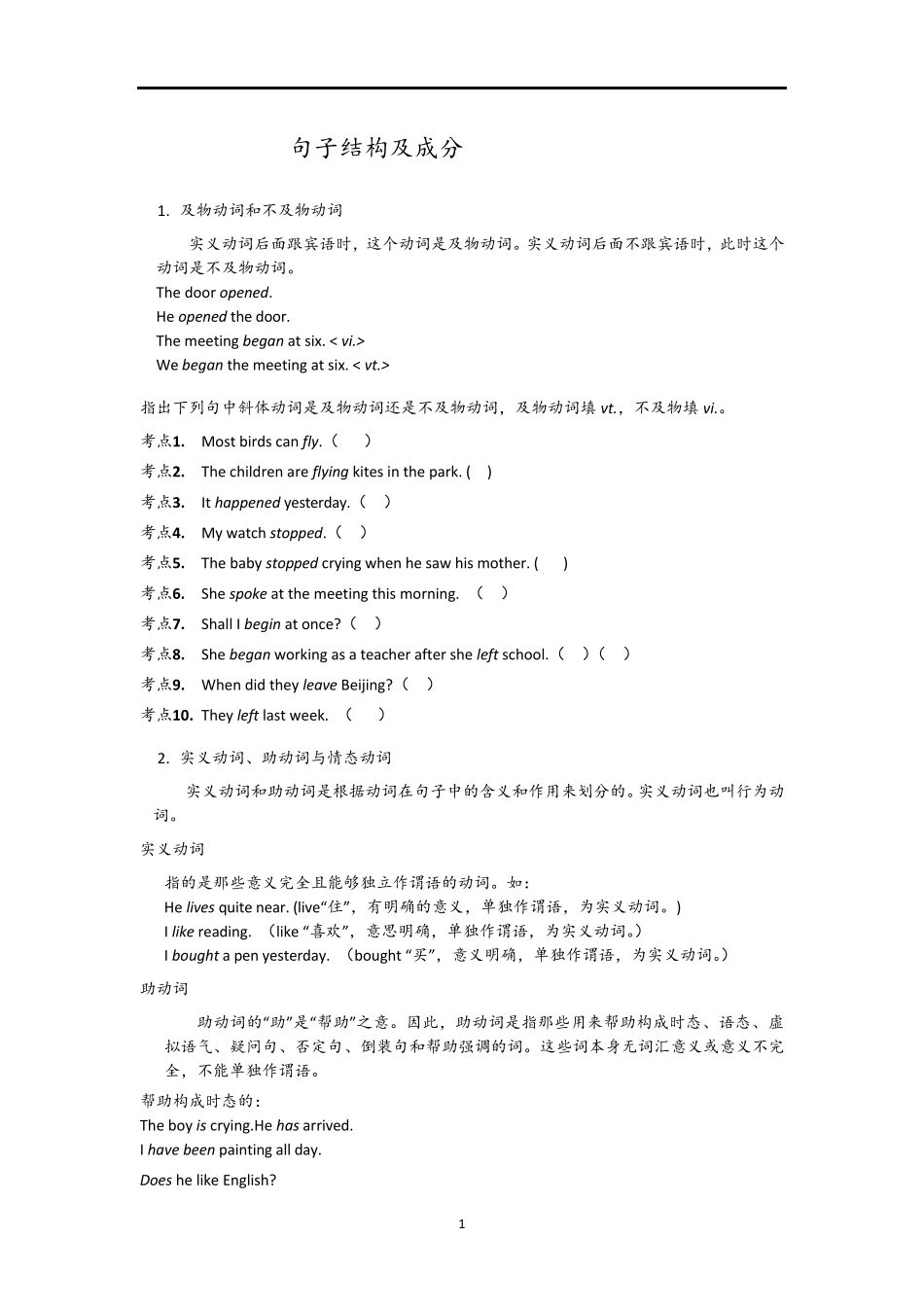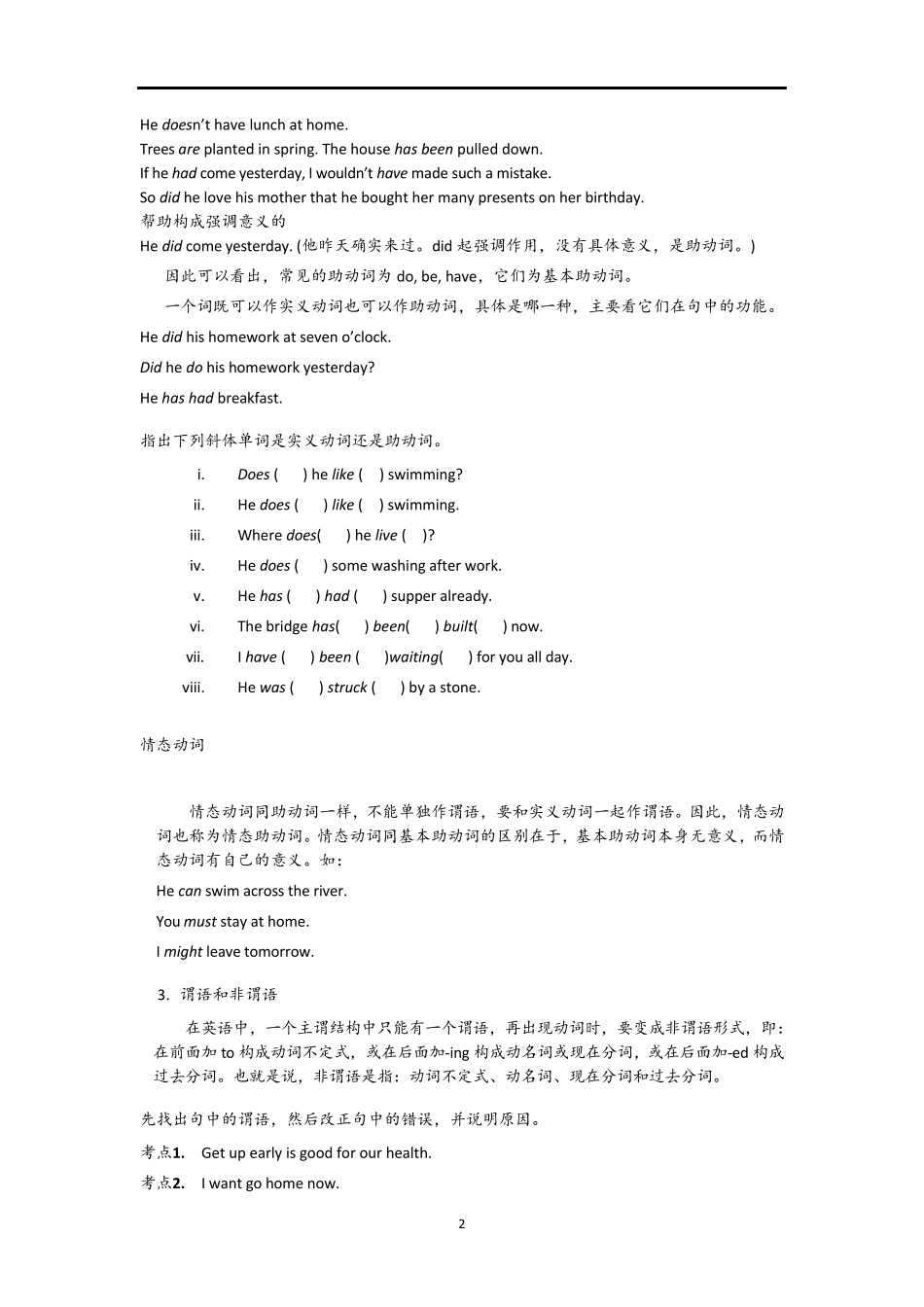1 句子结构及成分 1. 及物动词和不及物动词 实义动词后面跟宾语时,这个动词是及物动词。实义动词后面不跟宾语时,此时这个动词是不及物动词。 The door opened. He opened the door. The meeting began at six. < vi.> We began the meeting at six. < vt.> 指出下列句中斜体动词是及物动词还是不及物动词,及物动词填vt.,不及物填vi.。 考点1. Most birds can fly.( ) 考点2. The children are flying kites in the park. ( ) 考点3. It happened yesterday.( ) 考点4. My watch stopped.( ) 考点5. The baby stopped crying when he saw his mother. ( ) 考点6. She spoke at the meeting this morning. ( ) 考点7. Shall I begin at once?( ) 考点8. She began working as a teacher after she left school.( )( ) 考点9. When did they leave Beijing?( ) 考点10. They left last week. ( ) 2. 实义动词、助动词与情态动词 实义动词和助动词是根据动词在句子中的含义和作用来划分的。实义动词也叫行为动词。 实义动词 指的是那些意义完全且能够独立作谓语的动词。如: He lives quite near. (live“住”,有明确的意义,单独作谓语,为实义动词。) I like reading. (like “喜欢”,意思明确,单独作谓语,为实义动词。) I bought a pen yesterday. (bought “买”,意义明确,单独作谓语,为实义动词。) 助动词 助动词的“助”是“帮助”之意。因此,助动词是指那些用来帮助构成时态、语态、虚拟语气、疑问句、否定句、倒装句和帮助强调的词。这些词本身无词汇意义或意义不完全,不能单独作谓语。 帮助构成时态的: The boy is crying.He has arrived. I have been painting all day. Does he like English? 2 He doesn’t have lunch at home. Trees are planted in spring. The house has been pulled down. If he had come yesterday, I wouldn’t have made such a mistake. So did he love his mother that he bought her many presents on her birthday. 帮助构成强调意义的 He did come yesterday. (他昨天确实来过。did 起强调作用,没有具体意义,是助动词。) 因此可以看出,常见的助动词...


